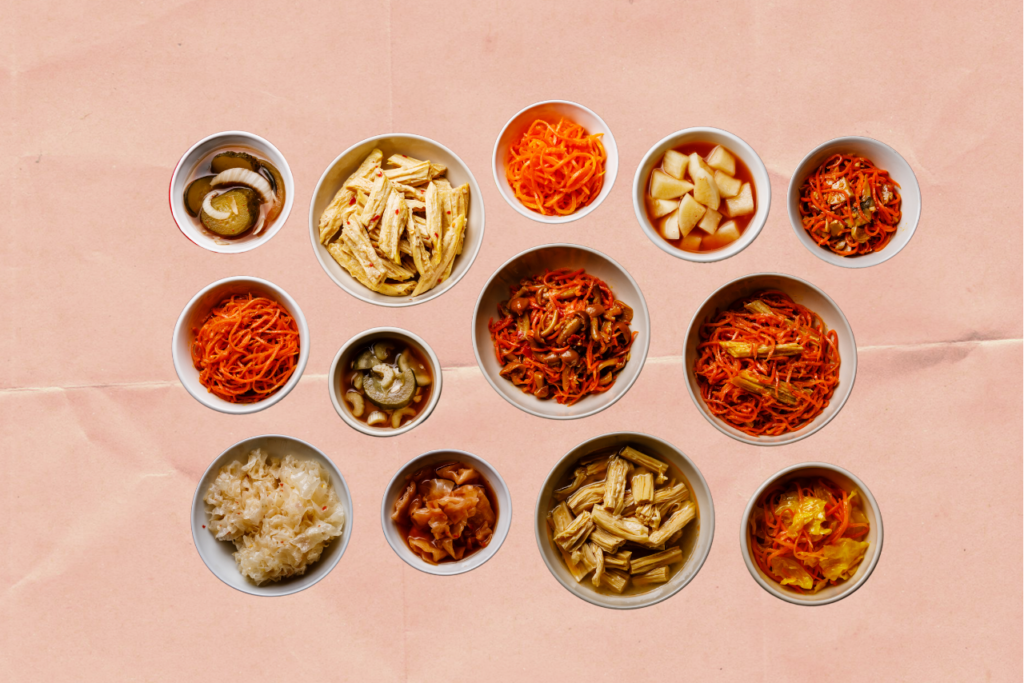We’ve got a gut feeling that the health of our digestive tracts is going to be the next big thing in the world of wellness trends. Oh wait, it already is; anything for a quick quip, hey?
Anyway, if you can’t stomach anymore jokes, rest assured; we’re going to get serious now. Because your gut health is no belly laughing matter. In fact, it contributes significantly to your wellbeing.
Your entire digestive tract is full to the brim with trillions upon trillions of living microorganisms. And whilst you wouldn’t want to name each of those trillion microorganisms individually, the collection of bacteria that live within your gut are known as your microbiome, or microbiota – and they play a number of important roles in your body.
These tiny bacteria that live in our stomach and intestines have been linked to immunity, skin conditions, mental health and so much more. If you’re wondering just how important your gut really is, and how to look after it, then read on; here are 6 IDEAL ways to improve your gut health.
FIRSTLY, RECOGNISE ITS IMPORTANCE
Knowledge is power, after all, and recognising your importance of your ‘second mind’ is the first step to improving its health. So, why should I care about gut health?
First and foremost, that microbiota we mentioned acts as your first line of defence against the outside world. Assuming your gut microbiome is healthy, it actually acts to kill off any invading organisms which enter your body. Interestingly, research has shown that your gut microbiome can even boost the function of your entire immune system. It does this by increasing the number of white blood cells in your body, while also improving the capacity of your immune cells to fight off invaders.
Secondly, your microbiome also has a profound impact on your ability to absorb nutrients in the food you eat. In this manner, they can directly enhance your body’s ability to absorb a host of vitamins and minerals and optimise the health benefits of all those kale smoothies, salads and quinoa you’ve been trying so hard to include in your diet. This can have a profound impact on your health, while also helping your body function efficiently on a daily basis.
Thirdly, it is well established that the state of your gut can help reduce inflammation throughout your body. This is important, because chronic inflammation has been linked to a variety of illnesses, including heart disease, diabetes, and even cancer. Consequently, having a healthy gut has the capacity to stave off some pretty serious diseases.
Lastly, the state of your gut bacteria can even impact upon your mental health. Good bacteria within your gut breaks down the fibre you eat for energy. During this process, it creates compounds known as Short Chain Fatty Acids (SCFAs) as a byproduct.
These SCFAs are absorbed into your body as they enter the bloodstream. Once there, they are delivered to the brain, where they impact mood and emotional control. There is now a pretty hefty wealth of evidence demonstrating that a healthy gut can protect against a myriad of mental health conditions, including depression and anxiety. No wonder it’s sometimes referred to as ‘’the second mind’’ by medical and nutrition experts, then.
So, how do you improve your gut health? Let’s find out…
IT’S ALL ABOUT FERMENTED FOOD
Deliciousness aside, fermented foods are also incredibly healthy, and this is largely down to the probiotics produced in the fermenting process.
Commonly found in fermented foods with active live bacterial cultures (such as yoghurt, sauerkraut and kimchi), probiotics are also available as supplements in the form of both liquid and chewable capsules, too. But to only take a tablet would be to miss out on the hugely delicious potential of so many food products; miso, pickles, buttermilk, kombucha…the list goes on!
The friendly bacteria in these foods supports the equilibrium and balance of the gut, and perks up a meal no end, too. Talk about killing two birds with one incredibly healthy stone!

EAT A DIVERSE RANGE OF FOODS
Diversity makes the world a better, happier place. A diverse diet, full of different foods and colours, also makes your gut a happy place, too. All those different species of bacteria we spoke about earlier all require different nutrients for growth, and if you’re having the same lunch nearly every day, and the same old standards night in, night out, then it doesn’t allow for a diverse microbiome population in your gut.
Put bluntly and with a touch of hyperbole thrown in for good measure, habitually and predictability is the enemy of good gut health. We’ve never heard of a better excuse to try out different recipes and foods from different cultures and regions of the world!
When it comes to choosing what to eat, try to ”eat the rainbow” – mixing up colours on your plate and eating lots of different fruits and vegetables means you’re getting a good mix of gut friendly nutrients.
It’s also important to not forget fibre – it’s needed for a healthy gut and to get things moving in your body. Foods which are fibre-rich include peas, beans and pulses, nuts and seeds, skin-on potatoes, wholegrain bread and pasta, and brown rice. A healthy mix of fruit and vegetables in that full spectrum of shades will also give you plenty of fibre; result!
By eating a wide variety of colours and flavours, you’ll also be feeding your gut with plenty of prebiotics, which helps stimulate the growth of gut microbiota. Mushrooms, in particular, are a wonderful prebiotic.
As the guys at Nature’s Happiness, purveyors of mushroom supplements in the US and Canada tell us, the wonder ingredient can ”take care of your gut-brain connection and improve nutrient absorption.”
MINDFUL EATING
Hands up if you’re guilty of wolfing down your food, eyes fixated on the TV and not on your fork? Well, eating without thinking does no favours to your gut health.
When it comes to gut and digestion, slowing down and properly chewing your food is the way forward. Chewing is the first stage in the digestion process and puts each meal on the path to healthy digestion from the off. To get all scientific, chewing breaks down your food into smaller particles that are more easily digested. This, in turn, makes it easier for your intestines to absorb the nutrients from your food.
Chewing mindfully may also stop you from overeating. When you eat quickly, the body doesn’t get a chance to tell your brain it’s full. However, when you chew slowly, it gives hormones the time to send signals to the brain that you’ve been well fed and satiated.
It’s time to start giving eating and digesting the care and attention it deserves. Try to eliminate all distractions from the dinner table. So, that’s phones placed well out of reach, TVs off, work banned from this sacred space, and only positive vibes and plentiful plates welcome.
CONSIDER A SUPPLEMENT
A probiotic complex is a very simple supplement that provides a potent dose of living, breathing, healthy bacteria straight into your digestive system. In this manner, they repopulate your gut with healthy bacteria to cause a marked uptick in gut health. No wonder probiotics have become the latest buzzword in the health and wellbeing sector.
It is important to note that not all probiotic complex supplements are made equal. If you are interested in giving one a go, do endeavour to buy a supplement which contains a variety of different bacterial strains to ensure you are getting an array of good gut bacteria, rather than just one. This will be clearly labelled on the packet; generally speaking, the live strains found in a reliable, high street pharmacy probiotic supplement should range from around 5 to 10.
With this in mind, supplementing with a probiotic complex rather than a single probiotic strain is going to be much more effective at improving digestive health. One of our favourites is the Probiotic Complex by Hey Nutrition, which contains seven scientifically supported strains of good gut bacteria, making it one of the most potent probiotic complex supplements on the market.
PLACE A PREMIUM ON SLEEP
While the exact mechanism is somewhat unclear, there is some interesting evidence showing that people who have bad sleep habits also have unhealthier microbiomes. With this in mind, you should try and get somewhere between 7 and 9 hours of decent sleep per night to boost your gut health.
Rather than witter on, we’ll redirect you to these super useful tips on how to sleep through the night without waking, written by the experts at *checks notes* IDEAL Magazine.
THE BOTTOM LINE
The state of your gut can have an impact on nearly every facet of your health, and this is why you should do everything you can to improve it.
Fortunately, this is not as hard as it sounds. By eating an array of gut friendly foods, limiting your intake of processed stuff, taking a probiotic complex, and getting enough sleep, you can have a huge impact on the state of your gut in a quick and easy manner.
So, what are you waiting for?





